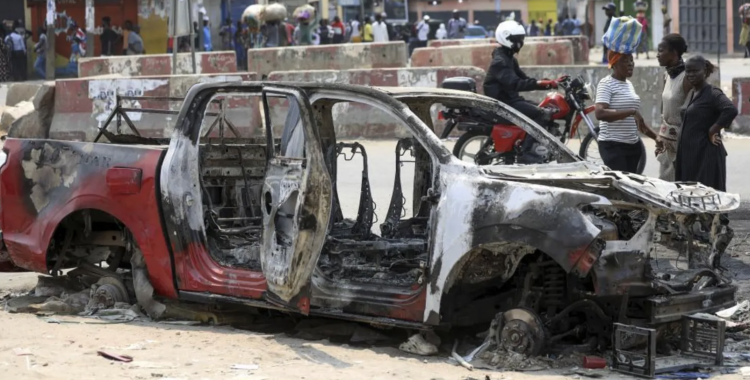João Lourenço broke his silence in a message to the nation broadcast on Angolan Public Television, after days of criticism, promising economic support in response to the destruction caused by the riots during the taxi strike.
"The Angolan government has decided to approve, as early as next Monday, support measures for companies affected by the wave of vandalism, with a view to more quickly replenishing stocks and maintaining threatened jobs," the head of state announced.
For João Lourenço, attacks on private commercial establishments "only discourage private investment and, therefore, reduce the supply of goods and services and jobs for the (...) population."
"Therefore, these acts can only be understood as acts of sabotage against the economy, aimed at further aggravating the social situation we are experiencing," he warned.
"Twenty-three years after the end of the armed conflict and in the year in which the country celebrates 50 years since the proclamation of its National Independence, we cannot accept or tolerate any more pain and mourning among Angolans," he stressed.
The head of state alluded to "unresolved social problems," assuring that the State "is doing its best, investing in social areas, health, education, housing, and job creation, with the massive hiring of health and education professionals, vocational training, and major public infrastructure construction projects."
According to João Lourenço, the infrastructure construction work in the new provinces will also provide jobs for thousands of young people interested in the work.
The Angolan President emphasized that youth education "does not reside on platforms and social media, which have no face or identity, but in the family, school, and community," highlighting that the State, families, churches, and civil society organizations "still have much work to do in the areas of civic, moral, and academic education" of adolescents and young people.
João Lourenço took the opportunity to thank "the law enforcement agencies, the justice system, and the health professionals, who promptly treated the injured in (...) hospitals with the aim of saving lives," as well as "the political parties, churches, civil society organizations, and all those who, clearly and unambiguously, spoke out publicly, condemning this barbarity."
The taxi drivers' strike, which began on July 28th and lasted three days, degenerated into riots and acts of violence, with looting, arson, and attacks on businesses and transportation.
According to the latest figures from the National Police, the disturbances resulted in 30 deaths and 277 injuries, as well as thousands of euros in damage. Property destroyed included 118 commercial establishments, 24 public buses, more than 20 private vehicles, five security force vehicles, a motorcycle, and an ambulance. 1,515 people were also arrested.
The epicenter of the violence was Luanda, but incidents also occurred in Benguela, Huíla, Huambo, Malanje, Bengo, and Lunda Norte.







